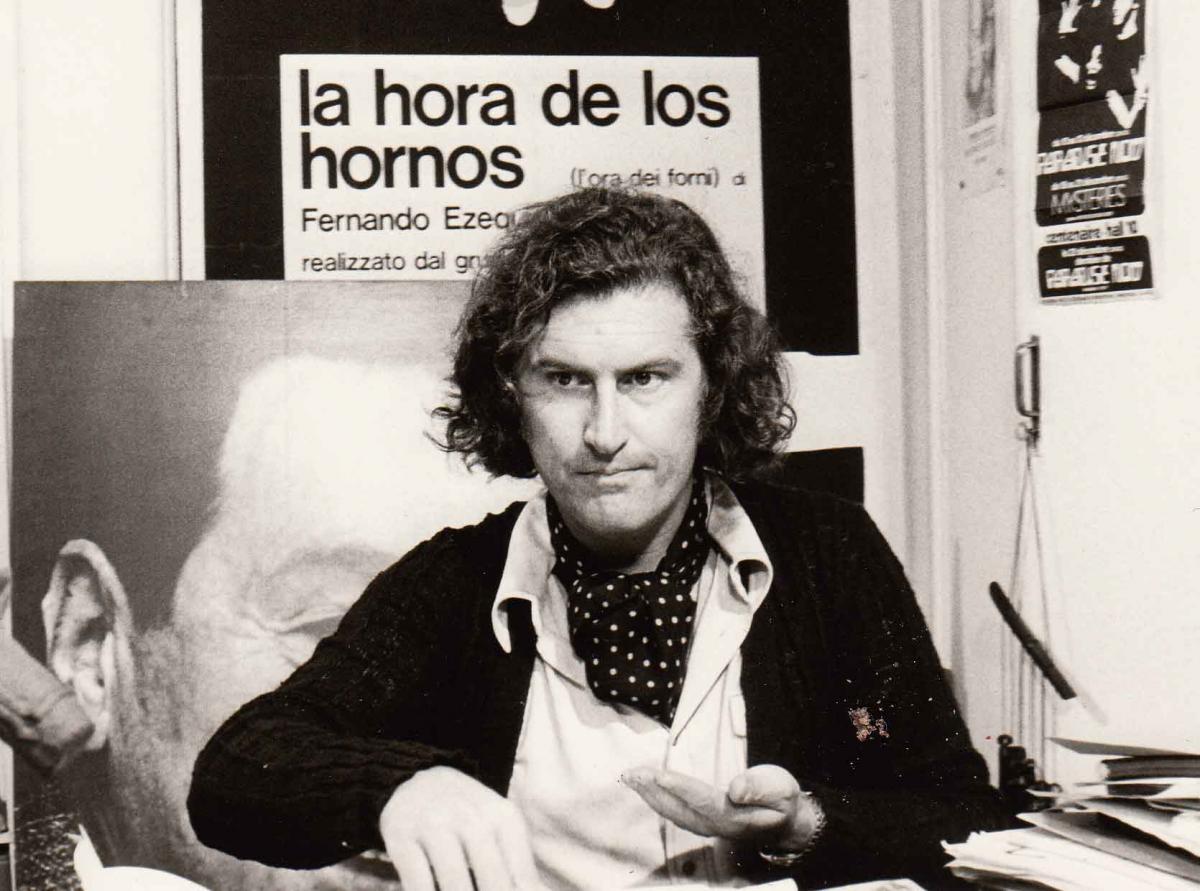Fernando Solanas (1936-2020)
On November 6, the Argentine filmmaker and politician Fernando “Pino” Solanas has passed away at the age of 84, some days after he and his wife were diagnosed with Covid-19 and admitted to a hospital in Paris, where Solanas was serving as Argentina's ambassador to UNESCO.
In 1969, Fernando Solanas, together with Octavio Getino, published the seminal manifesto essay ‘Toward a Third Cinema’ (read here or here), which spread the idea of a political Third Cinema, opposed to Hollywood cinema (First Cinema) and European auteur cinema (Second Cinema), that inspired many filmmakers in so-called developing countries. Solanas and Getino were co-founders and at the forefront of the collective Grupo Cine Liberación that was part of the Third Cinema movement and became closely linked to the Peronist Left. They are best known for the 1968 landmark documentary, La Hora de los Hornos [The Hour of the Furnaces] about neocolonialism and violence in Argentina and Latin America. Due to censorship, this 255-minute film was made in secret and distributed by workers organizations and student groups. In 1976, Solanas went into exile in Paris, only returning to Argentina with the restoration of democracy in 1983. He served as a representative for Buenos Aires in the Argentine National Congress in both the Chamber and Senate, and even ran for president in 2007. Solanas made more than 20 documentaries and fiction films – such as Tangos, the Exile of Gardel (1985) and Sur (1988) – up until 2018, although his later work often didn't receive the public attention it deserved.
“‘We must discuss, we must invent…’ It was this quote by Frantz Fanon that opened the manifesto ‘Toward a Third Cinema’, written by Solanas and Getino, who in the same year also released La Hora de los Hornos [The Hour of the Furnaces], a didactic film fresco produced clandestinely under the Juan Péron regime and signed by the Cine Liberación Group. In the manifesto, arguably the most influential articulation of Third World cinema, Solanas and Getino follow Fanon’s lead and argue that cinema should be ‘placed first at the service of life itself, ahead of art; dissolve aesthetics in the life of society’. Its objective was nothing short of a ‘decolonization of the mind’. In line with the thinking of the Russian avant-gardes of the 1920s, and Eisenstein in particular, according to whom films had to ‘plough the mind of the viewer’, cinema not only had to contribute to the development of a new radical consciousness, but should also be instrumental in the revolutionary transformation of society, as a means to an end.”
Stoffel Debuysere1
“There are two films, the openings to which I absolutely love: Loin du Vietnam (1967) and The Hour of the Furnaces. The first five minutes of both films are extraordinary. Syncopated, energetic, ‘This is going somewhere, this is gonna happen”. ‘We can see the bombs, are we gonna stop them?’ As exercises in cinema they were fantastic. The Hour of the Furnaces: I would happily give up next hour and a half because I think the essential work is done literally in those minutes. Nobody had done it before, not even the great Cubans. Fantastic images, but they don’t need to be attached to projects of aspirational fantastic utopian possibilities. It used to be like that: we watched The hour of the furnaces and we thought we should be in Angola fighting. We wrote, four our us, to ask if we could join. The fact that you would have been dead in two minutes didn’t enter our mind… If the cinema’s model for agency was that you imitated and mimicked what was going on in the film then we’re gonna loose. A lot of the films that were inherited from the radical tradition were made it that spirit, but they don’t have to be consumed in that spirit to be of value. So the question really was about this notion of use value. How one could re-calculate use value in their light, in what appears to be a failure, both in terms of the ambitions of the film as well as the content. And that was really what we were grappling with in the eighties.”
John Akomfrah2
You can watch La Hora de los Hornos [The Hour of the Furnaces] (1968) with English, French or Italian subtitles online (part 1, 2, 3).
Listen to or read French film historian Nicole Brenez about the film.
Here, you can read ‘Godard by Solanas! Solanas by Godard!’, a transcript of an interview between Jean-Luc Godard and Fernando Solanas in Paris in 1969.
Here, you can watch a 2018 masterclass (in French) with Solanas on the occasion of the festival Un état du monde at Forum des images in Paris.

- 1Stoffel Debuysere, “Notes on Militant Cinema (1967-1977),” Diagonal Thoughts, 22 March 2014.
- 2John Akomfrah in conversation with Stoffel Debuysere, “The Politics of Mourning,” Talk November 21, 2013, Ghent.

